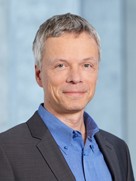Prof. Dr. Wolf-Dietrich Hardt

Prof. Dr. Wolf-Dietrich Hardt
Full Professor at the Department of Biology
- Work phone +41 44 632 51 43
- Fax print +41 44 632 11 29
- phone +41 44 632 33 19 Secretariat(Sec.)
- call_made0000-0002-9892-6420
- contactsV-Card (vcf, 1kb)
Additional information
Wolf-Dietrich Hardt was elected in October 2001 as a Professor for Microbiology at the Institute of Microbiology (D-BIOL) ETH Zurich. His group investigates the molecular mechanisms of infectious disease.
Wolf-Dietrich Hardt was born 3.6.1968 in Hannover (Germany). He grew up in Neustadt a. Rbge., a small village in the outskirts of Hannover. He is married and has 3 children. From 1987-92 Wolf-Dietrich Hardt studied biochemistry at the Freie Universität Berlin. He did his diploma- and PhD-theses (1992-1995) with Dr. Roland K. Hartmann in the group of Prof. Volker A. Erdmann at the institute of biochemistry, FU Berlin. There, he investigated the molecular function of catalytic RNAs. From 1995 to 1997 Wolf-Dietrich Hardt joined the group of Prof. Jorge E. Galan at Stony Brook, New York. During this inspiring time he began his work on the molecular mechanisms of Salmonella infections. Afterwards he moved to the Max von Pettenkofer Institute (group of Prof. Jürgen Heesemann) at the Ludwig Maximilians University in Munich. There, he continued his work on Salmonella pathogenesis and established his own research group (1998-2001). In October 2001 his research group moved to the Institute of Microbiology at the ETH Zurich.
The research in Wolf-Dietrich Hardt's group is focused on the molecular mechanisms of infectious diseases. This includes the evolution and adaptation of pathogens to new hosts and the molecular function of specific bacterial virulence factors. Currently, his lab has a strong focus on Salmonella Typhimurium pathogenesis and how these bacteria employ Type III secretion systems to manipulate signalling inside of host cells. This manipulation of the host by Salmonella Typhimurium is investigated using a wide spectrum of methods from biochemistry, molecular biology, immunology and cell biology.
Course Catalogue
Spring Semester 2024
| Number | Unit |
|---|---|
| 551-0126-00L | Fundamentals of Biology II: Cells |
| 551-0314-00L | Microbiology (Part II) |
| 551-0509-00L | Current Immunological Research in Zurich |
| 551-1100-00L | Infectious Agents: From Molecular Biology to Disease |
| 551-1106-00L | Progress Reports in Microbiology and Immunology |
| 551-1109-00L | Seminars in Microbiology |
| 551-1110-00L | Infection |
| 551-1126-00L | Technologies in Molecular Microbiology |
